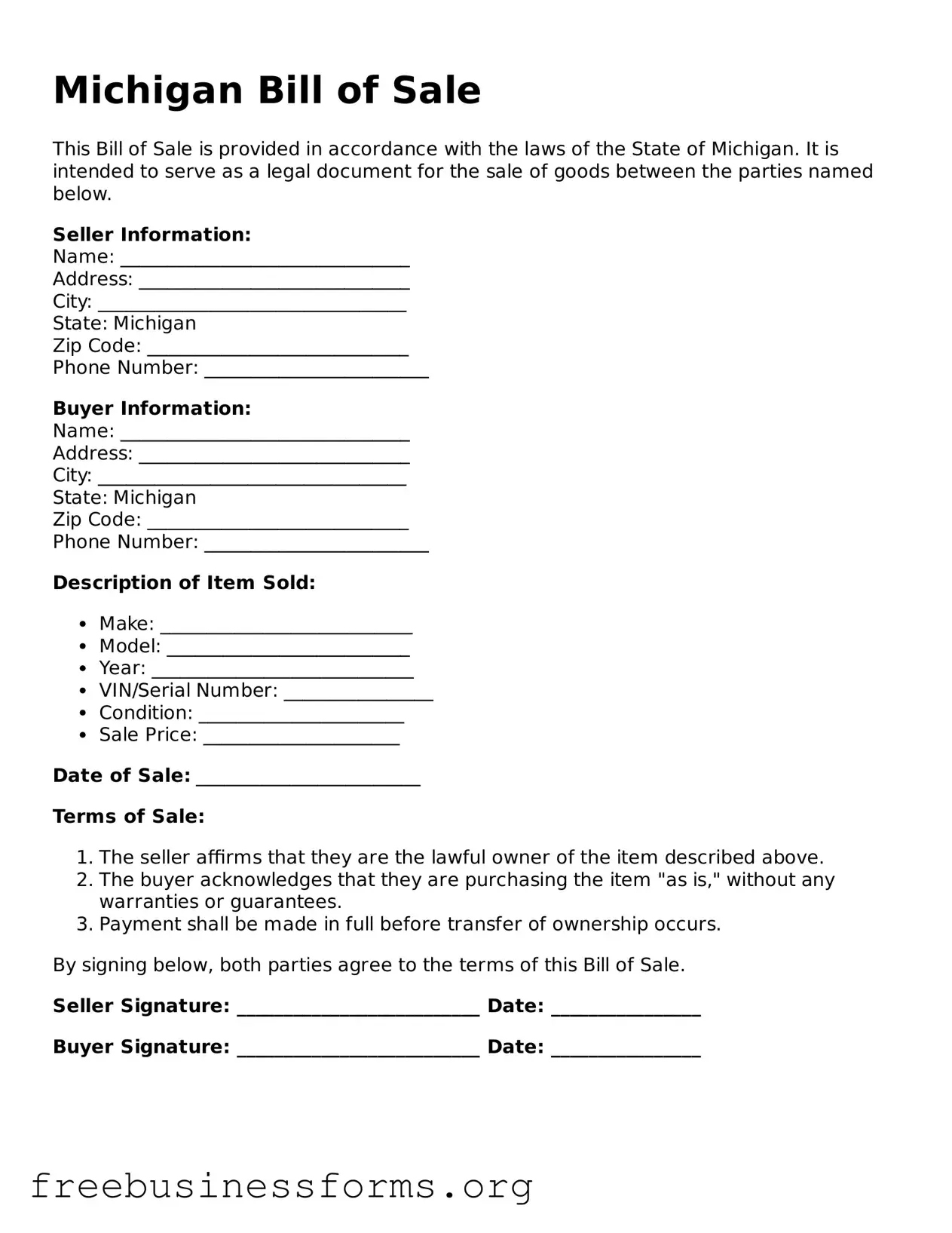Blank Bill of Sale Template for Michigan
A Michigan Bill of Sale form is a legal document that serves as proof of the transfer of ownership of personal property from one individual to another. This form outlines essential details such as the description of the item, the sale price, and the identities of both the buyer and seller. Utilizing this document can help ensure a smooth transaction and provide protection for both parties involved.
Open Form Here

Blank Bill of Sale Template for Michigan
Open Form Here

Open Form Here
or
↓ PDF File
Quickly complete this form online
Complete your Bill of Sale online quickly — edit, save, download.